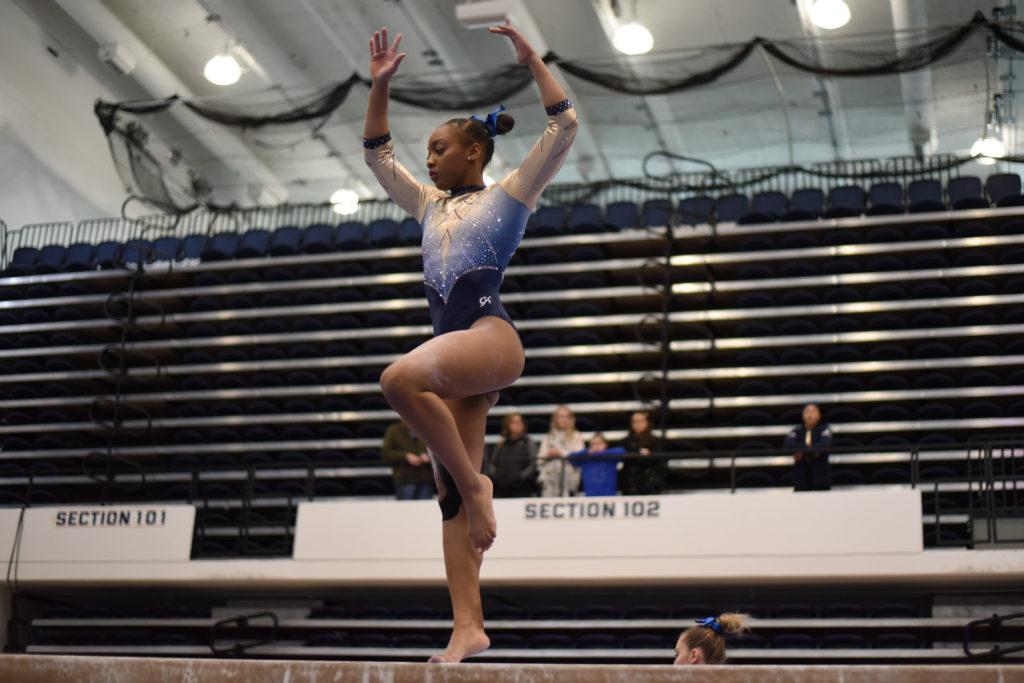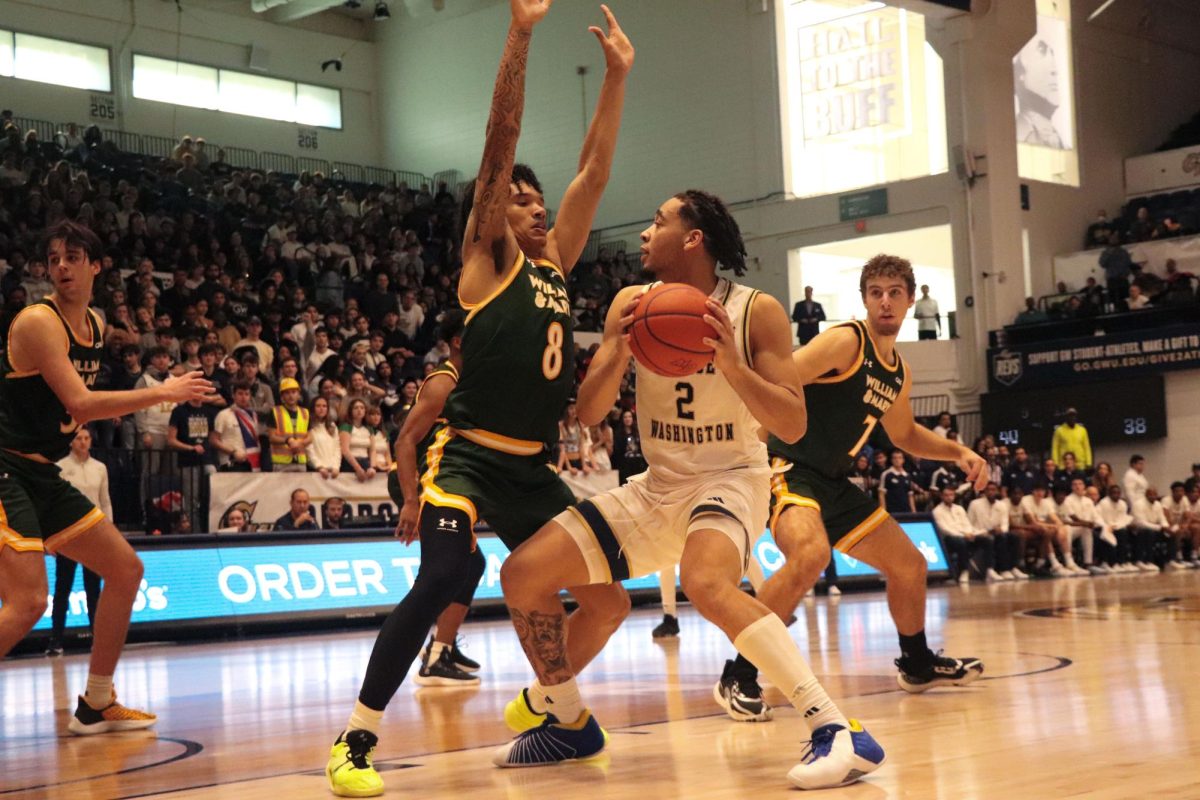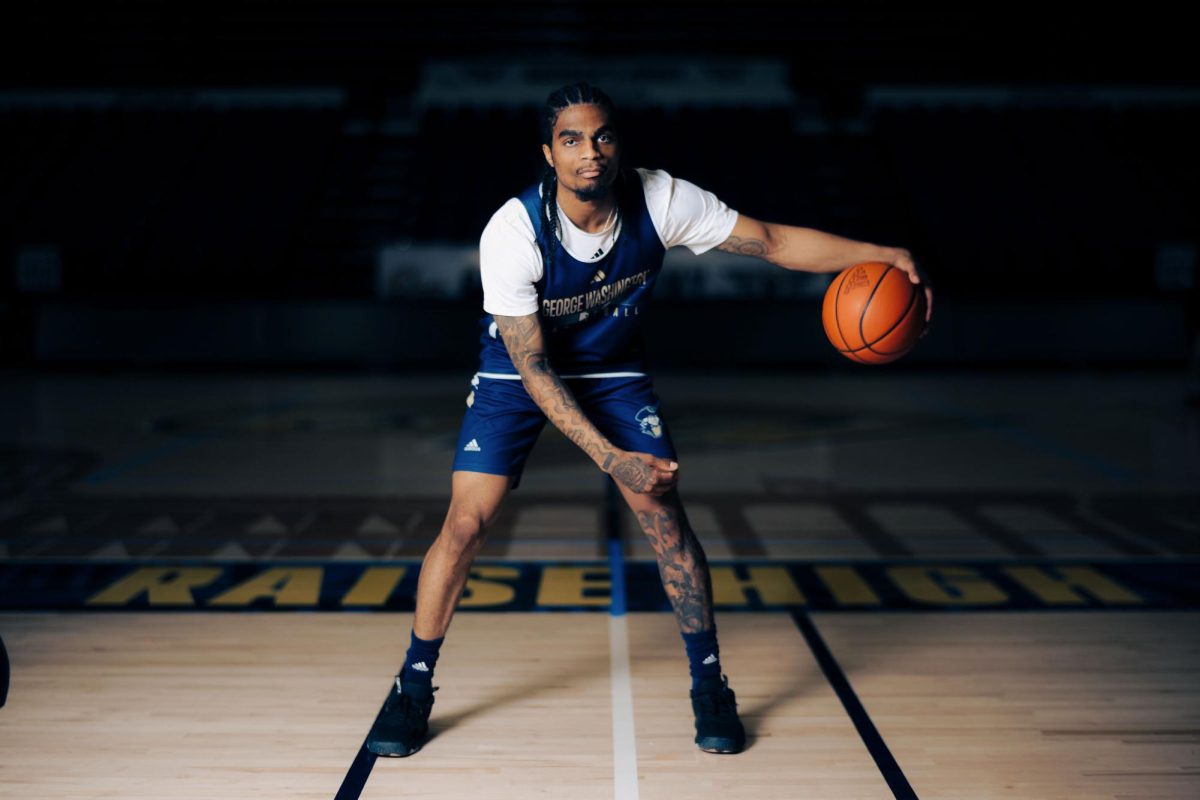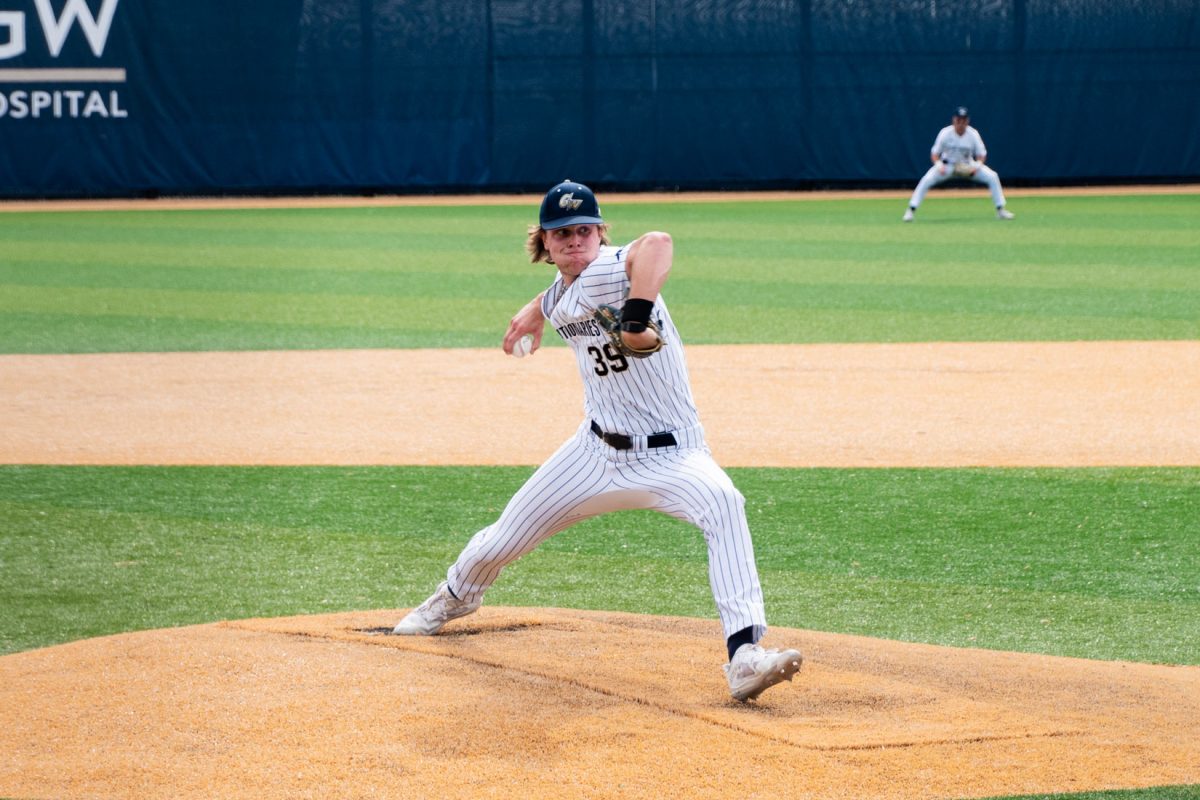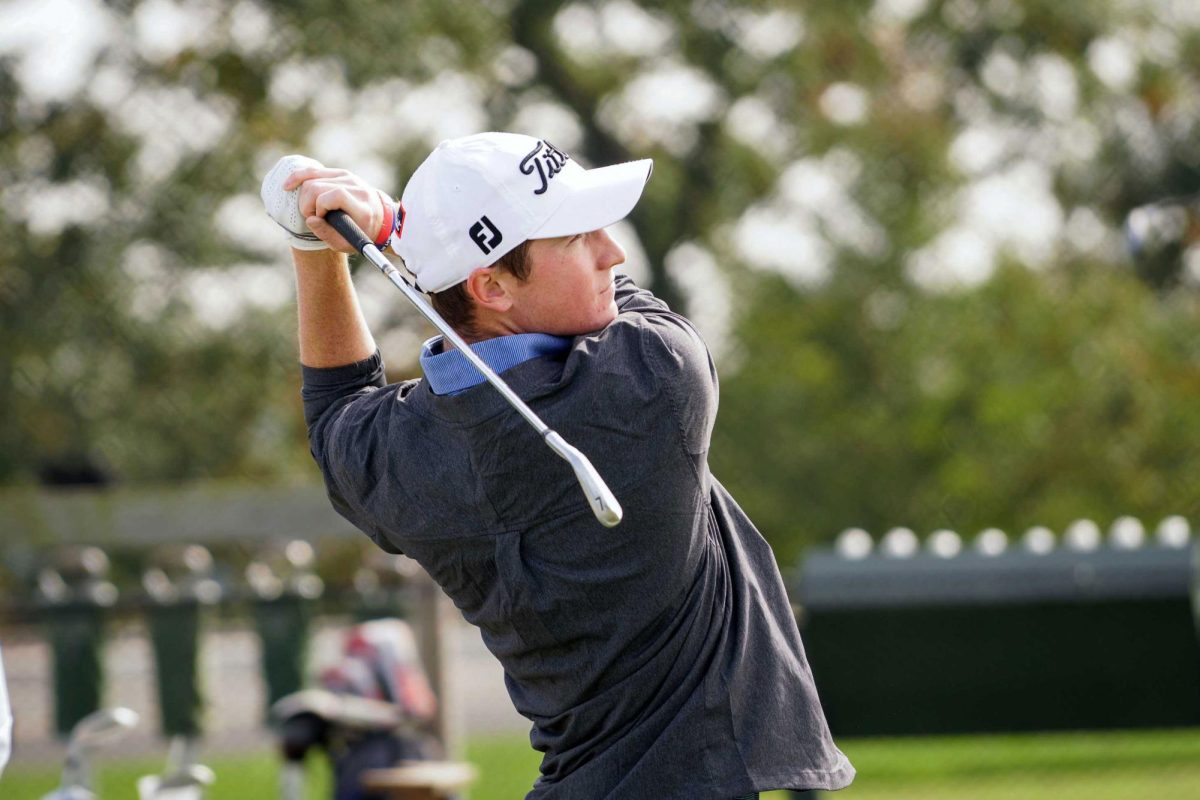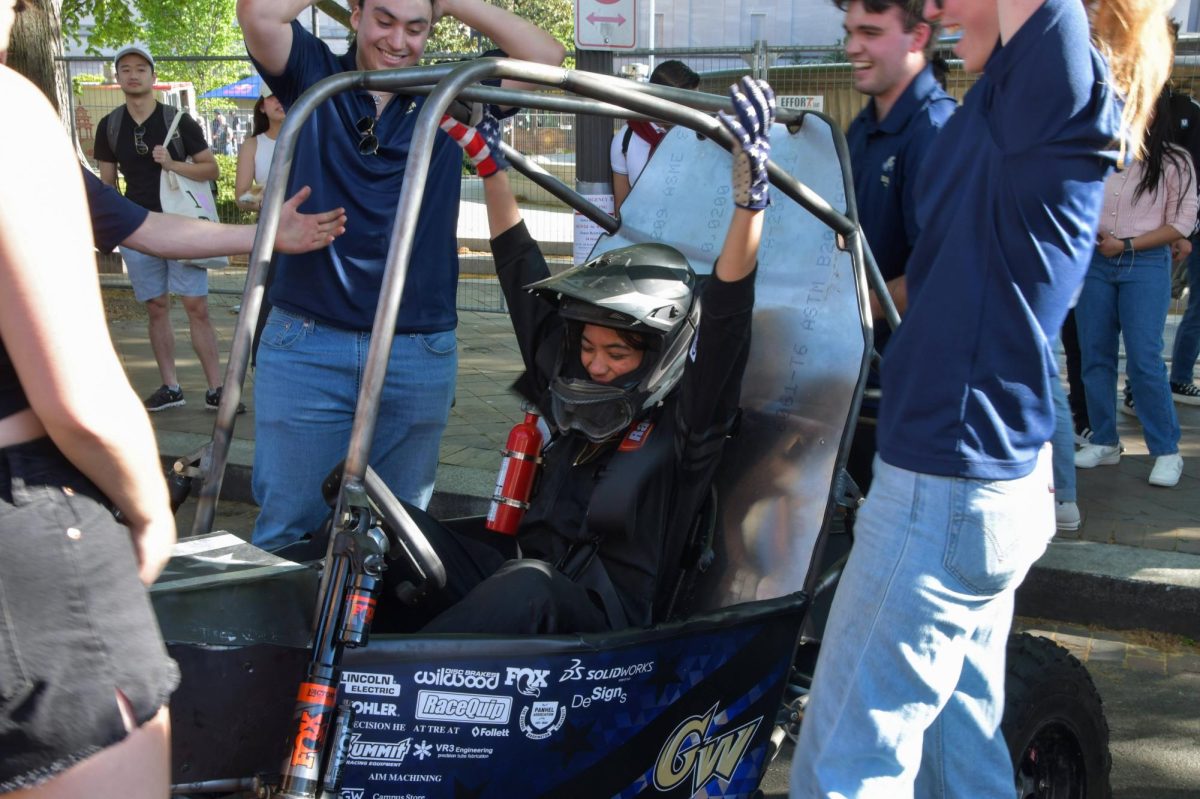As the COVID-19 pandemic surged through the nation, student-athletes were forced to confront a new reality as their mental health suffered.
Student-athletes at GW said the pandemic caused their mental health to decline as they felt removed from the college environment and struggled to find a balance between their academics, athletics and personal lives. They said the athletic department provided support for their mental health throughout the pandemic, encouraging them to meet with mental health professionals and lean on each other for support.
Senior women’s basketball guard Maddie Loder said she experienced a “straining” semester as she struggled to compartmentalize her emotions about the pandemic. She said she felt she placed her value on how well she was performing instead of her how she adjusted during the season.
“That felt very dehumanizing and very, bringing us down to a point where it was like, we were playing basketball, we were going to class and we were lying in bed,” she said.
She said the pandemic was the backdrop of a “brutal” season for her, as she was unable to maintain her regular schedule due to the social distancing mandated health guidelines. She said the team felt lucky to be competing given the conditions of the pandemic but felt she had a “minuscule” role to play during the season.
In May, the NCAA released a survey showing a 150-to-250 percent increase in student-athlete concerns over mental health. About one in 10 students reported feeling depression symptoms that did not allow them to carry on a regular day.
A study by Drexel and Kean universities showed that 23.7 percent of college-level student-athletes reported clinically significant levels of depressive symptoms. In the study female athletes were almost twice as likely to show clinically relevant symptoms compared to male athletes.
Loder currently leads GW’s chapter of Hidden Opponent, an organization that seeks to empower students to talk about their mental health. She said organizations like this have begun to gain popularity as professional athletes like Naomi Osaka and Simon Biles have led the way for athletes addressing mental health.
“The field female student-athletes will feel more empowered to really say how they’re feeling because when you look at Simone Biles, who is the greatest of all time, in her respective sport, people can be like ‘I know I’m not as great as Simone Biles, but if she feels this way, it’s OK for me to feel this way at whatever level I’m not,’” Loder said. “And so I’m at least hopeful that that will open more doors for people to be more honest about their feelings.”
Senior gymnast Deja Chambliss said the pandemic made it difficult for her to maintain a work-life balance, adding another stressor to her life. She said adapting to a team mentality allowed team members to put their challenges into perspective and see they were not alone.
Chambliss said the athletics department enlisted professional sports psychologists as a resource for many of the student-athletes. She said head coach Margie Foster-Cunningham emphasizes gymnastics as a safe space for her team, focusing on breathing exercises to help them concentrate before the meets to help them relax.
“It’s focused on diaphragmatic breathing, to get your breathing in check, your mind in check before you have up on the beam to do your stuff, like nerves, their thing, and I’m not gonna say that they aren’t,” Chambliss said. “But when you focus on your breathing, and you kind of get your brain in the right mindset to get up and go, it’s a lot, it works a lot better for you.”
Chambliss said the movement Biles created for mental health was empowering because gymnasts are typically taught to “do as told” without prioritizing their own health and safety.
“That was an empowering thing for her to say, ‘Hey, I’m not in the right mental state. I have to put myself first even if that means putting my team second, but I think she put herself and her priorities first, and she did what she needed to do,” Chambliss said.
Junior gymnast Hannah Munnelly said mental toughness and adaptability were vital for the season to help team members adjust to the new changes in protocol. She said she had trouble adjusting to online classes and facing the health uncertainties, like the possibility of outbreaks during meets, that arose during the season.
Munnelly said the department encourages them to communicate instead of “suffering in silence,” to work on finding the routine that’s best for them. She said organizing her daily schedule helps her keep her student and athlete life separate, allowing her to compartmentalize as much as possible to focus on one thing at a time.
“You’re not panicking while you’re up there because then after all those hours of training and all those routines that you’re done, by the time you get up there to compete, it’s just automatic,” she said.


